15 Best Tips To Take Care Of Dry Skin (DIY Methods)
Following a good skin care routine with moisturizing products goes a long way.

Image: ShutterStock
Dried, scratchy, and dull-looking cracked skin needs extra attention and care. Whether it is wintertime or summer, humid or dry, moisturizing alone might not be enough to maintain skin hydration. But do not panic; we have included several tips for dry skin right here. In addition, a few easy techniques to boost your skin’s moisture-locking capacity will help you achieve softer, suppler, and more radiant skin. Continue reading to learn the 15 finest techniques and home remedies to treat dry skin. Keep scrolling.
In This Article
What Causes Dry Skin?
Dry skin is a result of skin dehydration due to rapid loss of moisture. It is commonly caused by the following:
- Medical Conditions: Conditions such as eczema, psoriasis, or genetic factors can damage the skin barrier, which increases the rate of moisture loss from the skin and leads to dryness and flakiness.
- Dehydration: Insufficient fluid intake may be a major cause of skin dryness.
- Age: The natural aging process deteriorates the functions of the sebaceous glands, which can cause dry skin.
- Weather: Low humidity levels in dry climates lead to loss of moisture in the air and dehydration.
- Harsh Skin Products: Certain chemicals, like sulfates, in skin care products may be harsh and may not suit your skin type, causing dryness.
Learning the different causes of dry skin helps us better understand how to take care of it. Understanding the causes of dry skin is just the beginning; establishing a consistent skincare routine is the next vital step. A routine tailored to your skin type can reinforce its barrier, combat dryness, and make your skin healthier and more resilient. Consistency is key to ensuring lasting hydration and improved skin health. See the next section for the 15 best tips to do so.
Key Takeaways
- Bathing with lukewarm water can prevent dry and irritated skin.
- Add body oils to your bath to boost skin moisture content and get rid of dead skin
- Taking omega-3 and vitamin E supplements can help reduce inflammation and skin dryness.
- Avoid toners and anti-aging products with retinoids as they might dry your skin further.
15 Best Tips To Take Care Of Dry Skin
1. Use Warm Water
We seldom pay attention to the water temperature while showering or washing our faces. But the water temperature plays a significant role in keeping your skin hydrated. Use lukewarm water instead of hot water to bathe and wash your face. Lukewarm water will keep your skin from drying further.
2. Use A Fragrance-Free Cleanser

Cleansers with fragrances contain harsh chemicals that can cause skin irritation. Use a gentle, fragrance-free cleanser for your body and face. Such a product preserves natural skin moisture.
3. Use Coconut Oil
Coconut oil
is loaded with fatty acids (1). It helps hydrate the skin and seals moisture into the skin. It softens and smoothens skin too. Apply coconut oil right after taking a shower or before going to bed at night.
4. Use An Oatmeal Moisturizer
If you have dry, itchy, and sensitive skin, switch to an oatmeal moisturizer. Oatmeal moisturizers help soothe and calm irritated and inflamed skin (2). They also help protect the skin from UV rays and reduce skin redness.
5. Use Aloe Vera Gel
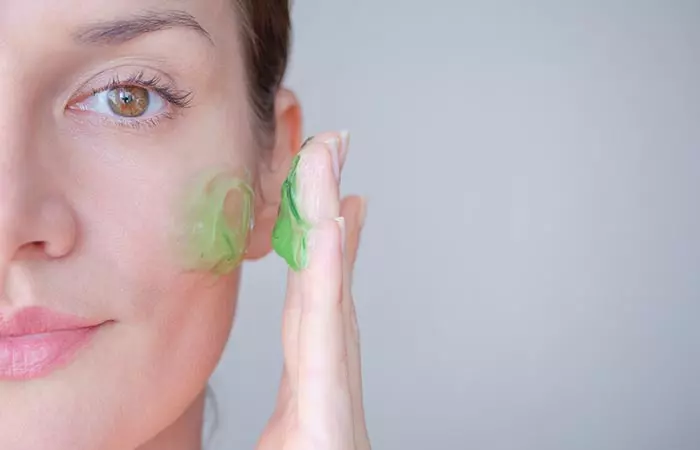
Aloe vera has anti-inflammatory properties and helps in skin moisturization. Applying aloe vera gel to your face after toning will help soothe and nourish your dehydrated skin. Massage the aloe vera gel for 5 minutes in a circular motion. Wait for 10 minutes before applying a moisturizer. Aloe vera-infused gloves and socks also help improve skin integrity and reduce dryness (3), (4), (5).
Shanique, a YouTuber, used aloe vera to treat her dry skin for 5 days. On day 5, she observed, “My skin has cleared up a lot. The dark marks aren’t as dark, and I don’t have any redness or any pimples (i).”
6. Apply Avocado Mask
Avocados are loaded with vitamin E, a potent antioxidant and skin moisturizer (6), (7). Using an avocado face pack can also boost skin health and reduce dryness. Mash ½ an avocado, add 1 tablespoon olive oil, and 1 tablespoon milk. Mix well and apply the mask to your face and neck. Wait for 20 minutes before washing off with lukewarm water. Do this two to three times a week.
 Quick Tip
Quick Tip7. Apply Hyaluronic Acid Serum
You can also keep your skin hydrated, plump, and luminous by using a hyaluronic acidi A naturally occuring substance that works as a lubricant in body tissues and used externally for cosmetic purposes. serum. Dry skin is prone to look aged faster, especially because the sebaceous glands are not producing enough oils to keep your skin wrinkle-free and plump. Hyaluronic acid is known for its water-retaining capacity (8). You can use it (with or without glycerin) during the daytime before applying moisturizer, sunscreen, and makeup.
Hyaluronic acid serums can work wonders for dry skin. A recent study published in the Journal of Cosmetic Dermatology showed an increase in overall skin hydration after the application of hyaluronic acid formulations in both short and long-term usage. Here’s a glimpse of how the formulation effectively increased water content in facial skin tissues.

Hyaluronic Acid Increases Skin Hydration
Source: Multicenter evaluation of a topical hyaluronic acid serum8. Avoid Using Anti-Aging Products
Anti-aging products are a strict no for dry skin. However, if you are using any, ensure they are free of retinoids or AHAsi A group of naturally occurring acids used in skin care products for their action as exfoliants and skin rejuvenators. as they may irritate dry skin (9), (10).
9. Exfoliate Regularly
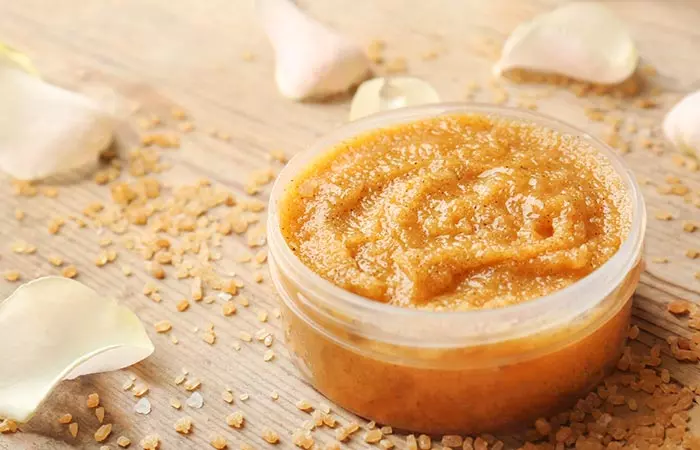
Dry and peeling skin can feel itchy and further irritating. An easy way to get rid of the flaky skin is to exfoliate it. Use a gentle scrub or chemical peels like mandelic acidi A type of AHA that works against acne by regulating sebum production and reducing inflammation. to get rid of the top dead and dry skin layers and cracked skin. Here are a few good exfoliators for dry skin you can check.
10. Add Oils To Your Bath
Do you like to dip your tired body in a lukewarm water bath with bath salts? Then consider adding your favorite body oil to your bath the next time. That way, your skin will remain moisturized and hydrated. You also will be able to get rid of the dead skin and rough skin much more easily.
11. Protect Your Skin From The Sun
Exposing dry skin to the sun can aggravate the problem. The sun’s harmful UV rays accelerate skin aging and lead to the premature appearance of wrinkles and fine lines (11). Apply an SPF 50 sunscreen to your exposed skin before you step out for skin protection. Wear a scarf, a broad brim hat, a cap, and sunglasses to protect your face.
12. Apply Lip Balm
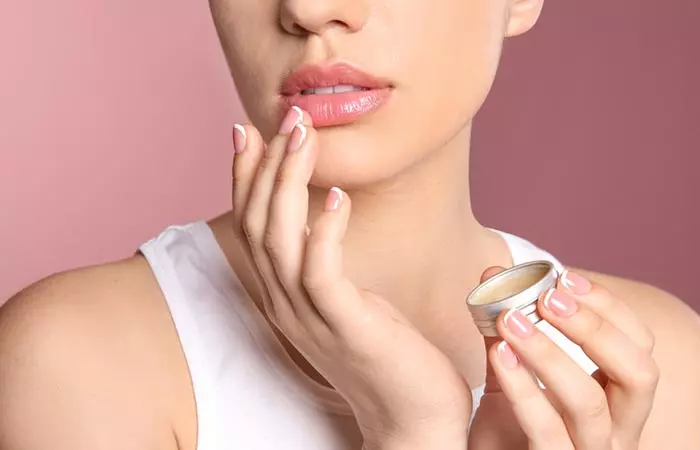
Dry skin is not restricted to the cheeks, nose, or forehead alone. Your lips can also become dry and develop cracks. Take care of your lips by applying a moisturizing lip balm or lip oil. You can also apply a mixture of honey and coconut oil as a lip mask every day to get rid of chapped lips.
13. Use Oil-Based Makeup
Water-based makeup is not meant for dry skin. It may contain ingredients like dimethicone that could further dry your skin out. Use makeup from foundations and eyeshadows, and blushes, and lipsticks that are cream-based or oil-based. Dry skin can always do with that extra hydration infused in these makeup products. The right makeup products also prevent any dry patches or skin peeling. Such products leave your skin with a healthy glow and a dewy finish.
14. Stay Hydrated
You must stay hydrated, and more so if you have dry skin. Drink 8 glasses of water per day (or more if you work out or live in hot climate conditions). Incorporate a diet for dry skin by consuming watermelons, oranges, muskmelons, celery, cucumbers, and tomatoes to provide your body with the right nutrients and antioxidants that keep your skin protected and nourished.
15. Take Omega-3s And Vitamin E
Omega-3 fatty acids and vitamin E supplements are loaded with anti-inflammatory and antioxidant properties (7), (12). These supplements can help reduce skin inflammation and oxidative stress in the body, thereby reducing skin dryness too (13), (14). Talk to your doctor to determine the dosage and frequency.
 Quick Tip
Quick TipIn a study conducted on a population of 44,689 participants from 27 countries to highlight the high prevalence of dermatological conditions, 43.35% of the participants frequently reported fungal skin infections (8.9%), acne (5.4%), and atopic dermatitis or eczema (5.5%) as their primary dermatological conditions. These diseases were also found to be more common in women than men.
These are the 15 tips to take care of your dry skin. Also, it is recommended to consult a doctor if you notice skin conditions such as eczema, psoriasis, or xerosis. So, while these tips can help reduce skin dryness, especially in the winter, is there anything else you can do? Yes. Keep reading to know how to hydrate your skin during winter.
How To Add Extra Moisture During Winters

- Avoid products with salicylic acid. Salicylic acidi A type of beta-hydroxy acid that has scientifically found to help unclog pores and reduce acne. is a common ingredient in face washes. But it has a skin-tightening and -drying effect on dry or combination to dry skin (15). Use a gentle face wash that does not contain salicylic acid.
- Avoid products with retinoids. Sun exposure, aging, and genetics can cause hyperpigmentation and the appearance of dark spots. Products with retinoids help fade away the dark spots. But retinoids could be extremely drying (16). Avoid them if you have dry, sensitive, and/or combination to dry skin.
- Avoid using toners. Most toners tend to absorb oils and may leave your skin drier.
- Use a room humidifier. Winters are cold and dry. A great way to keep your skin from flaking and cracking is to use a room humidifier.
- Apply olive and coconut oils. Apart from using an oatmeal moisturizer, you can also apply olive or coconut oils to your face and body. Allow the oil(s) to soak into your skin and wipe away the excess oil with a damp, soft washcloth.
- Apply a banana mask. Mash ½ a banana and apply it to your face or use a readymade banana mask to add extra hydration to your skin.
- Get some exercise. Sweating helps keep the skin healthy and glowing. Get some exercise outdoors or at the gym.
- Consume seasonal fruits and veggies. Seasonal fruits and vegetables are extremely good for your health, skin, and hair. Stock your kitchen with fresh fruits and veggies and consume them to get your skin glowing naturally.
Dry and itchy skin needs additional care and love all year round. Trying out simple tips for dry skin such as washing your face with fragrance-free face washes and using moisturizers with natural ingredients such as oatmeal and avocado will keep your skin hydrated, smooth, and soft. It also helps with skin itching and skin tightness. What must also be kept in mind is to avoid using products rich in retinoids and salicylic acid as they tend to absorb all the oil and leave your skin scaling, dry, and flaky skin. Along with a simple skin care routine for dry skin, eating fruits and vegetables, drinking plenty of water, and exercising regularly will add to the glow of your skin.
Frequently Asked Questions
What drink helps dry skin?
Drinking enough water, fresh fruit and vegetable juices, and green tea may help treat dry skin.
Is badam oil (almond oil) good for the face?
Yes, badam or almond oil is good for the face. It helps rejuvenate the skin and reduce the appearance of scars. However, do not use it if you are allergic to almonds (17).
Is milk good for dry skin?
Yes, milk is good for dry skin. You may apply it as a toner or to moisturize the skin as it is rich in various proteins and possesses anti-aging and antioxidant properties (18).
Is Vaseline good for dry skin?
Yes, using Vaseline may lock in the moisture and reduce skin dryness.
Do you struggle with dry skin? Don’t worry, the video below has an effective solution for you! Learn how to take care of dryness with the right moisturizers, face washes, sunscreens, anti-aging creams, and more.
Personal Experience: Source
StyleCraze's articles are interwoven with authentic personal narratives that provide depth and resonance to our content. Below are the sources of the personal accounts referenced in this article.
i. I USED FRESH ALOE VERA ON MY SKIN FOR 5 DAYS AND THIS HAPPENED!https://www.youtube.com/watch?v=fOc4rBGHpD8
References
Articles on StyleCraze are backed by verified information from peer-reviewed and academic research papers, reputed organizations, research institutions, and medical associations to ensure accuracy and relevance. Read our editorial policy to learn more.
- Health Effects of Coconut Oil-A Narrative Review of Current Evidence
https://pubmed.ncbi.nlm.nih.gov/30395784/ - Colloidal oatmeal: history, chemistry and clinical properties
https://pubmed.ncbi.nlm.nih.gov/17373175/ - Evaluation of aloe vera gel gloves in the treatment of dry skin associated with occupational exposure
https://pubmed.ncbi.nlm.nih.gov/12548256/ - The Effect of Aloe Vera Clinical Trials on Prevention and Healing of Skin Wound: A Systematic Review
https://www.ncbi.nlm.nih.gov/pmc/articles/PMC6330525/ - Aloe vera in dermatology: a brief review
https://pubmed.ncbi.nlm.nih.gov/19218914/ - The Odyssey of Bioactive Compounds in Avocado (Perseaamericana) and Their Health Benefits
https://www.ncbi.nlm.nih.gov/pmc/articles/PMC6826385/ - Vitamin E in dermatology
https://pubmed.ncbi.nlm.nih.gov/27559512/ - Hyaluronic acid: A key molecule in skin aging
https://www.ncbi.nlm.nih.gov/pmc/articles/PMC3583886/ - The mechanism of retinol-induced irritation and its application to anti-irritant development
https://pubmed.ncbi.nlm.nih.gov/14615068/ - Dual Effects of Alpha-Hydroxy Acids on the Skin
https://www.ncbi.nlm.nih.gov/pmc/articles/PMC6017965/ - Effect of the sun on visible clinical signs of aging in Caucasian skin
https://www.ncbi.nlm.nih.gov/pmc/articles/PMC3790843/ - Omega-3 fatty acids and inflammatory processes: from molecules to man
https://pubmed.ncbi.nlm.nih.gov/28900017/ - Oral supplementation with fish oil reduces dryness and pruritus in the acetone-induced dry skin rat model
https://pubmed.ncbi.nlm.nih.gov/26195090/ - Discovering the link between nutrition and skin aging
https://www.ncbi.nlm.nih.gov/pmc/articles/PMC3583891/ - Efficacy and Tolerability of an Acne Treatment Regimen with Antiaging Benefits in Adult Women
https://www.ncbi.nlm.nih.gov/pmc/articles/PMC6011872/ - Retinoids in the treatment of skin aging: an overview of clinical efficacy and safety
https://www.ncbi.nlm.nih.gov/pmc/articles/PMC2699641/ - The uses and properties of almond oil
https://pubmed.ncbi.nlm.nih.gov/20129403/ - Milk Proteins-Their Biological Activities and Use in Cosmetics and Dermatology
https://pubmed.ncbi.nlm.nih.gov/34071375/
Read full bio of Dr. M. Khawar Nazir
Read full bio of Arshiya Syeda
Read full bio of Ramona Sinha
Read full bio of Shiboli Chakraborti












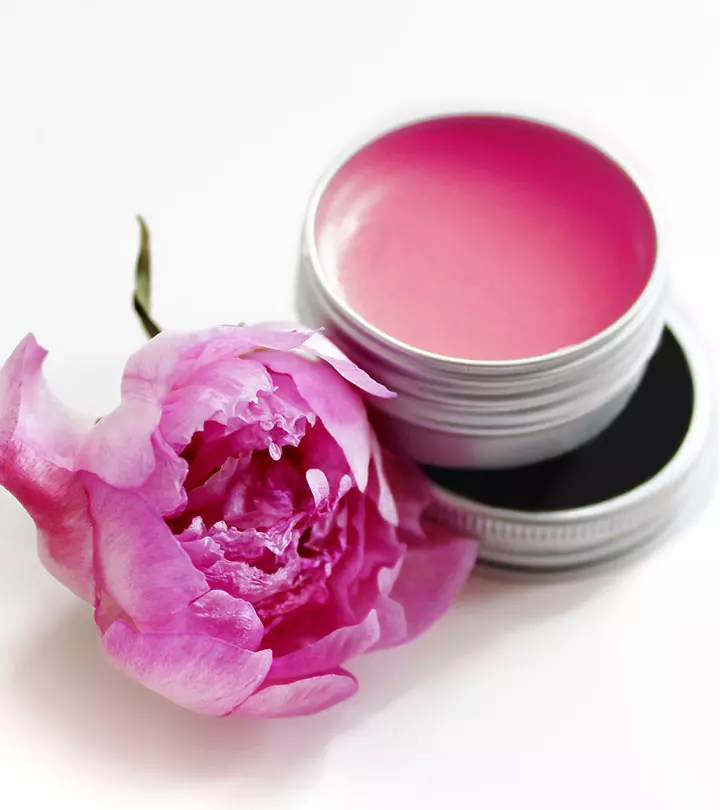

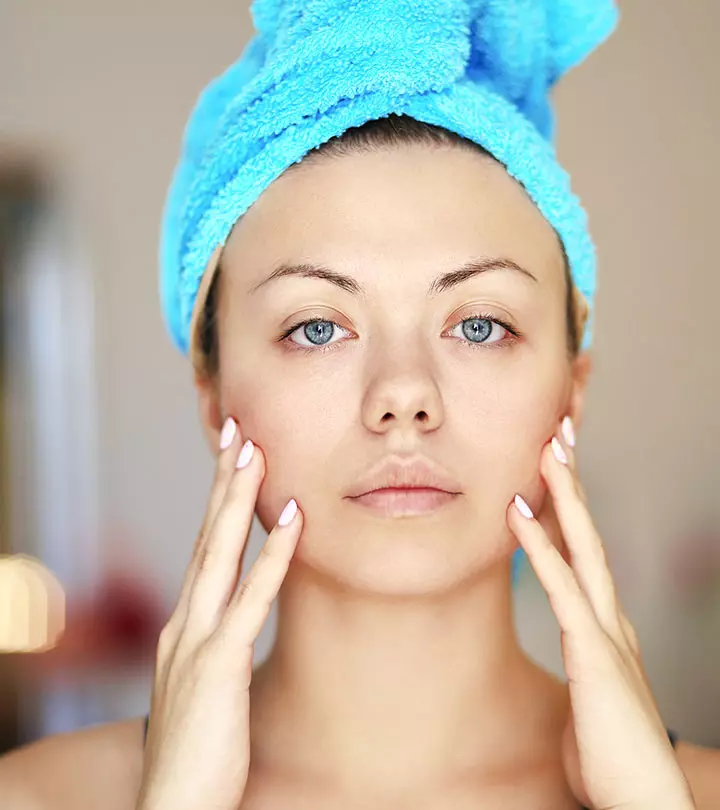

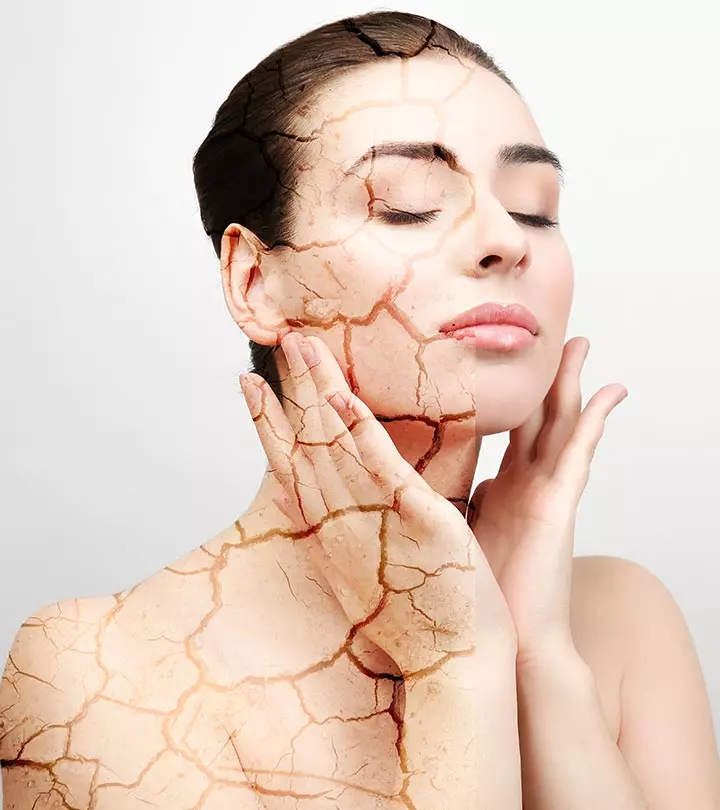



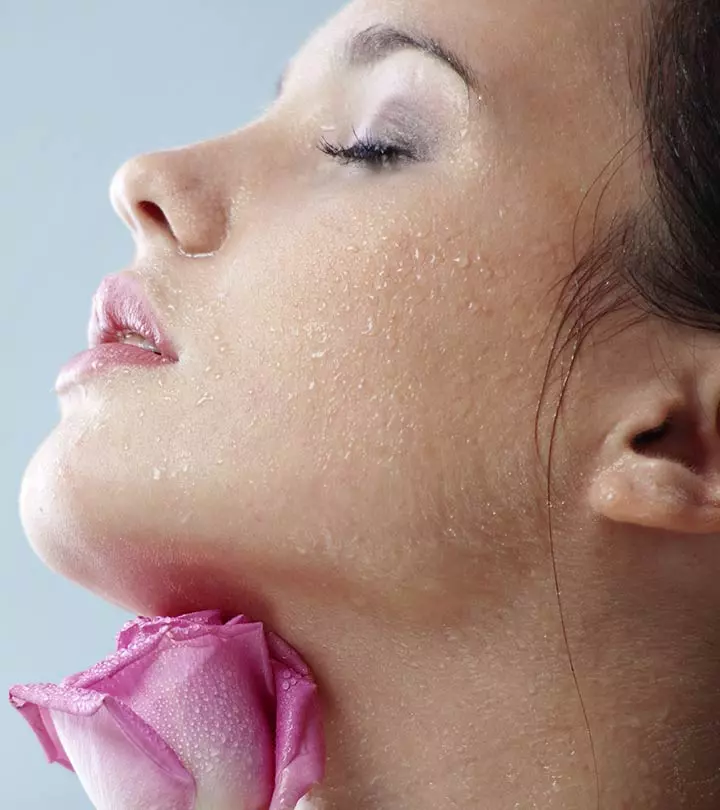

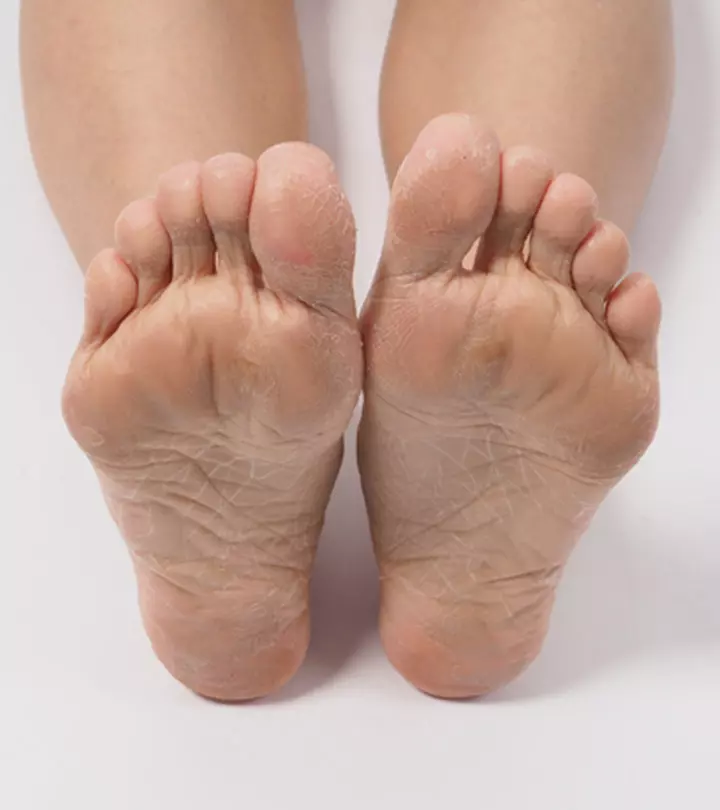

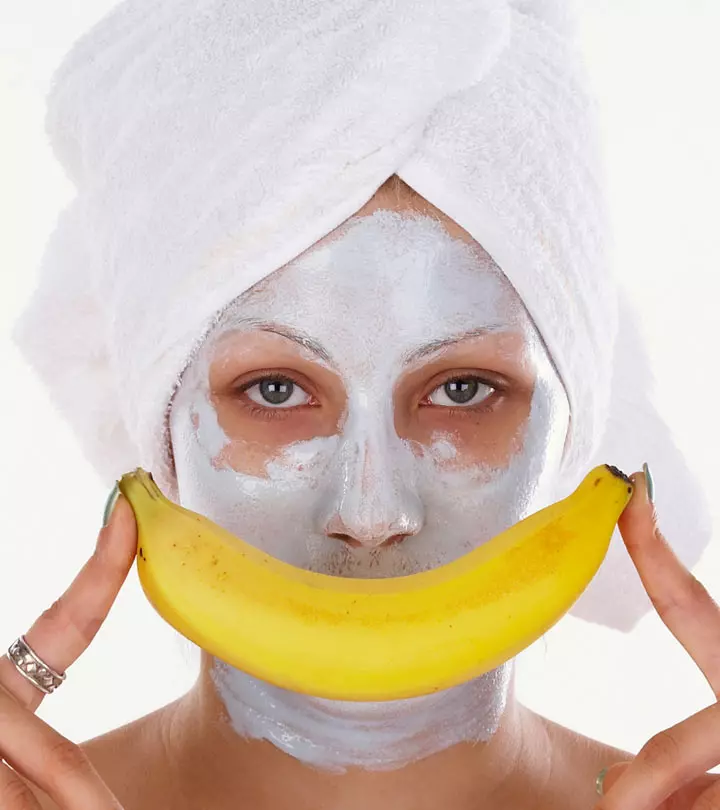
Community Experiences
Join the conversation and become a part of our empowering community! Share your stories, experiences, and insights to connect with other beauty, lifestyle, and health enthusiasts.